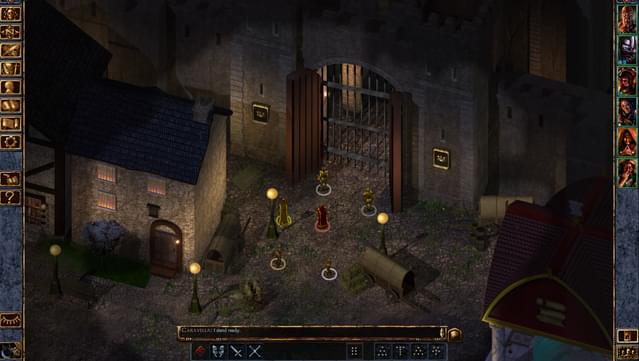

Though I dabbled in all of the classes (i.e. Diablo 2's gameplay was often far more exciting from moment to moment, and some magic combination of slaughtering legiosn of demons and their undead allies and the fact that another potential milestone was always just around the corner had me enthralled for god knows how many hours. While the gameplay itself had amazing depth, the actual mechanics I used took a back seat to continuing the saga (and at more than one hundred hours, the saga was long indeed). Baldur's Gate is a game that I well and truly played primarily because of the story and characters.


Saving a circus, retaking a castle from trolls, salvaging a talking sword that really wants to kill things from the sewers and drawing the ire of an ancient red dragon-and that's all only in the first couple chapters of the game.I liked both games immensely and it would be a disservice to both if I ranked them different. And in Shadows of Amn, the variety in both quests and settings will keep any player on their toes. It's one of those few examples of the sequel being better than the original: BioWare took everything that worked about Baldur's Gate and poured it into Shadows of Amn while taking the narrative, and the player's narrative choices, to an even greater scale. When it comes to creating a wide range of quests available to players, few games do it better than Baldur's Gate 2: Shadows of Amn in particular. Romances make their BioWare debut in Baldur's Gate 2 (another staple that stuck around throughout the company's two major franchises), and while in many ways BioWare has refined its romances in future games, Baldur's Gate is still on par with them in terms of length and detail. Besides the ever-lovable Minsc, there's a whole cast to meet it's a formula that might sound familiar, but Baldur's Gate is BioWare's first foray into RPGs and the one that established its technique. Characters in Baldur's Gate are a big part of how players form an emotional attachment to their playthrough.


 0 kommentar(er)
0 kommentar(er)
